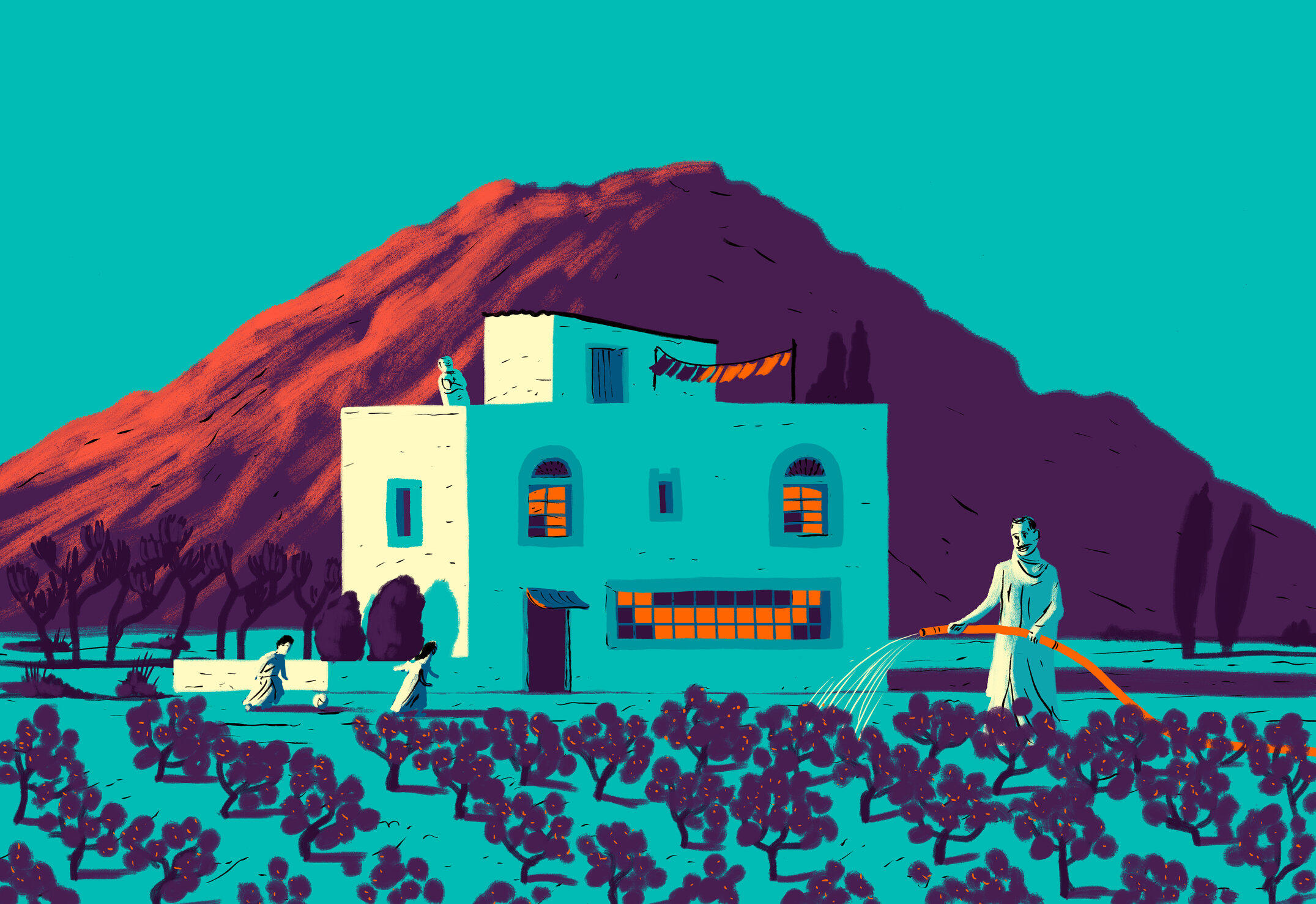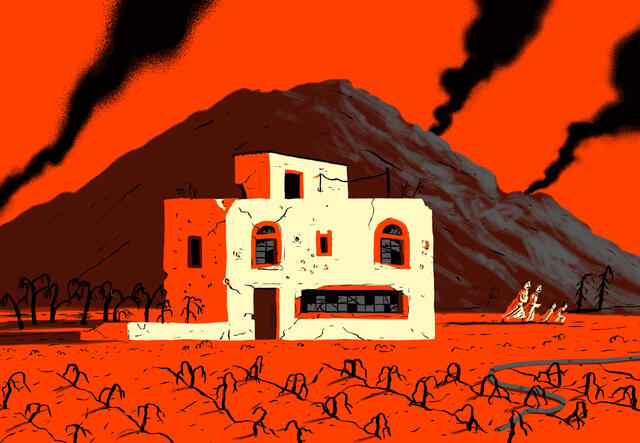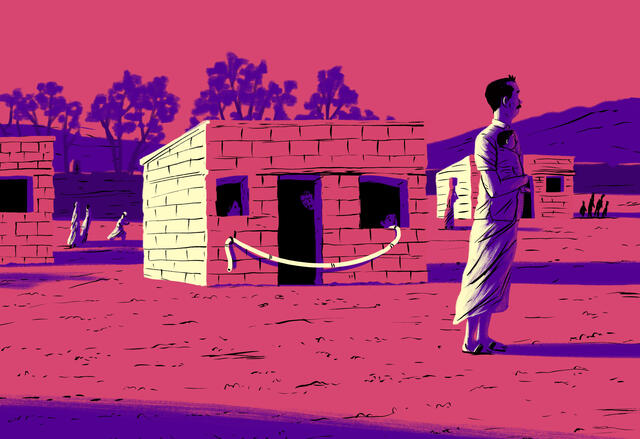
Abdu remembers looking out of the window of his house fondly. Alongside luscious crops he recalls seeing his three young children playing with their friends, and his father watching on.
His small farm in Qataba District provided Abdu with enough income to support his young family, who he supports alone. He would sell produce from his farm to the local market, bringing in the money he needs to get essentials like food, medicine, clothing and fees to send his children to school. He told us: “We lived in peace and happiness without worry. My children were full of health and never had to worry about food.”
The war changed everything

In 2015 the war changed everything. Water, fuel, fertilizers and pesticides shot up in price. Water for the farm that used to cost £27 a day now cost £251. When the drought hit Yemen and the rain stopped, it became impossible for Abdu to keep his crops alive.
Abdu went on the search for other ways of making a living but the conflict made it unsafe to travel around the country. Besides, much of the farmlands that were once a sustainable source of income for local people were now diminished. He was able to earn some money working on one larger farm that did manage to survive – but the wages just weren’t enough to provide the basics for his family.
I question why things happened as they did and at times I can’t help but cry.
For many nights Abdu went to bed hungry so his children could eat. But even forgoing food himself wasn’t enough to ensure his children - Roaida, age 7, Moneef, age 5 and Khatab age 1 – had enough. With no nutrients, they got sick. “I never imagined life could be so hard for us,” he says.
Life became so difficult that they were forced to flee their home.
On the way to recovery

Being so young, Khatab struggled the most. An aid worker from the International Rescue Committee identified him as malnourished. The family were given food vouchers so that they could buy produce from the market.
Abdu was given vouchers to buy the food he needs to cook for his family, giving him the independence to choose which produce to buy whilst supporting the local economy. His children are now well on their way to recovery.
He says: “I no longer worry about food – my only concern is to give my children a good education and to ensure they are healthy and strong. I want Roaida to become a teacher and Moneef a doctor. I question why things happened as they did and at times I can’t help but cry.”
When he lived happily on his farm Abdu had no idea of the difficult time that lay ahead for his children – now he’s looking to the future with hope that they will be able to achieve their dreams.
Share this
Share this story on Facebook.
Learn more
Read about how we’re having an impact in Yemen.
As the war wages on in Yemen, millions of families like Abdu’s are at risk of malnutrition and other diseases. The International Rescue Committee, in partnership with the European Commission's Humanitarian aid and Civil Protection department (ECHO), is on the ground delivering food vouchers, providing immunisations to protect people from disease. Illustrations by Paul Blow.